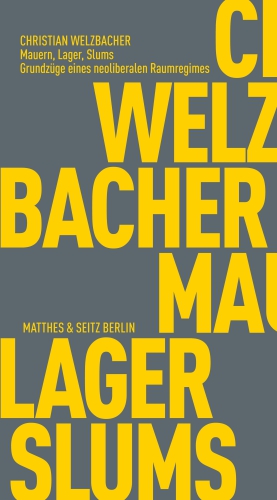Wherever you look, no other topic has dominated the political debates of the global North in recent decades as much as flight and migration. But instead of enacting and implementing coherent laws and regulations, instead of reflecting on the dignity of human beings across national borders, radical demands are being made to tighten asylum laws, for deportation and isolation, and highly standardized strategies of exclusion, selection and "storage" are being implemented. But what are the calculations behind camps, walls, refugee shelters and border security facilities? Who profits from them? And above all: who creates the structures and framework conditions that make it possible to profit from the treatment of refugees? Christian Welzbacher takes a detective-like approach to the infrastructures of deterrence that undermine the last values of a critical democratic society with a sober cost-benefit calculation.
Essay
Christian Welzbacher, born in 1970, lives in Berlin. In addition to his work as an author, Welzbacher also works as an exhibition organizer and translator. He has received several awards for his work, including the Theodor Fischer Prize of the Central Institute for Art History and the Critics' Award of the Federal Chamber of Architects. Most recently published by Matthes & Seitz Berlin: Bobby. Requiem for a Gorilla (2019).







